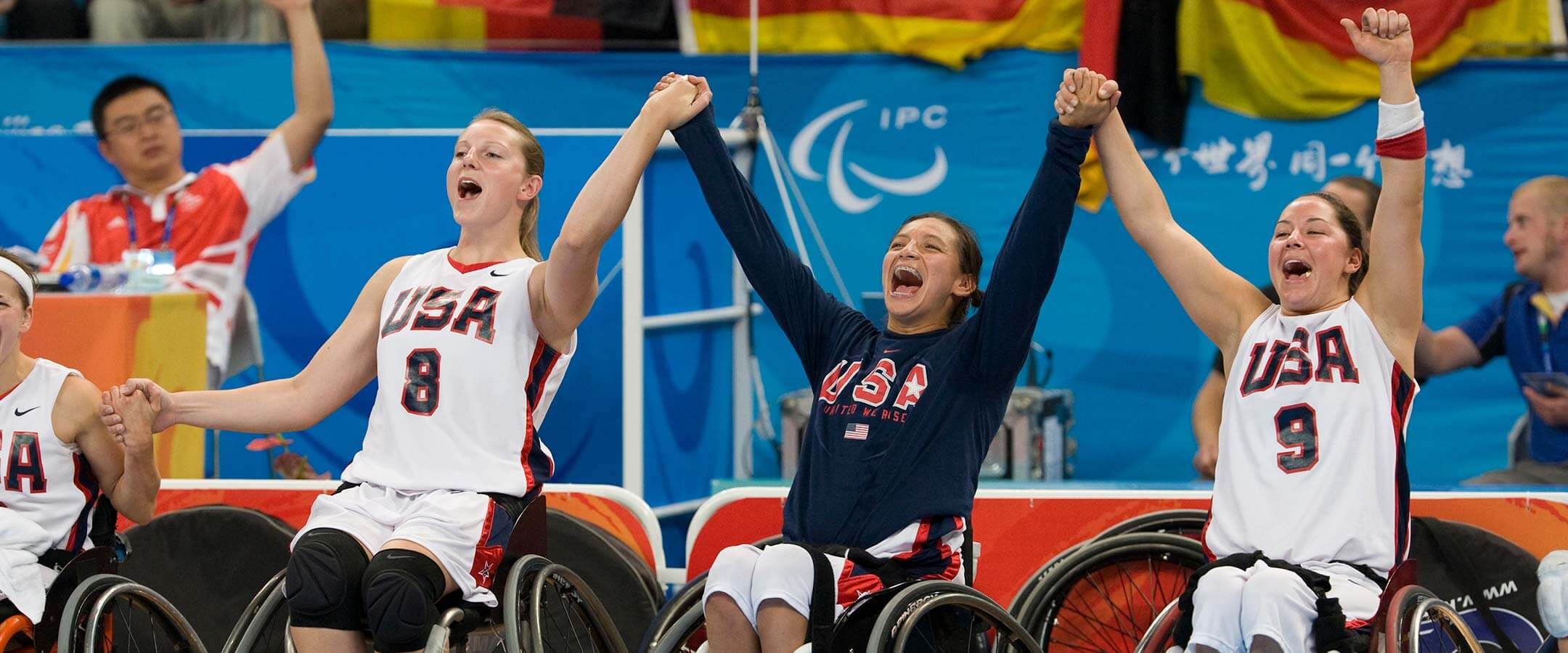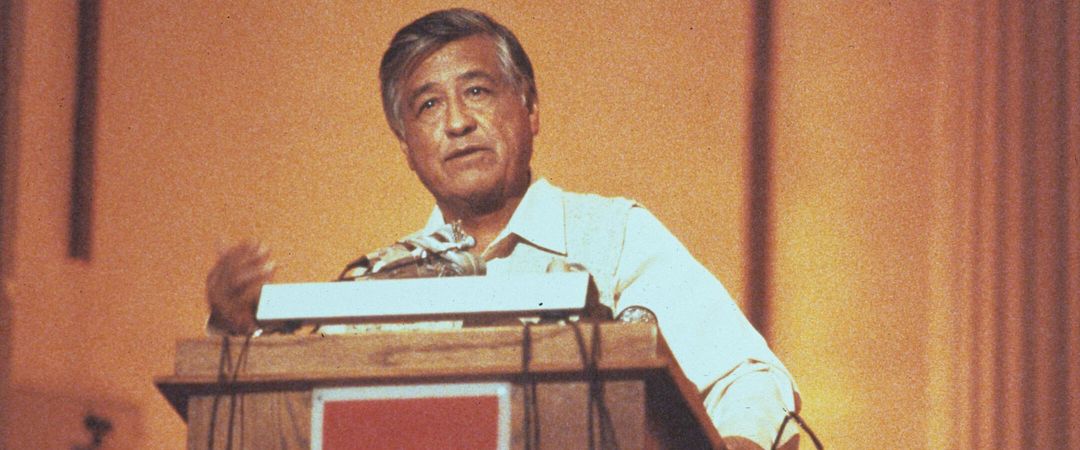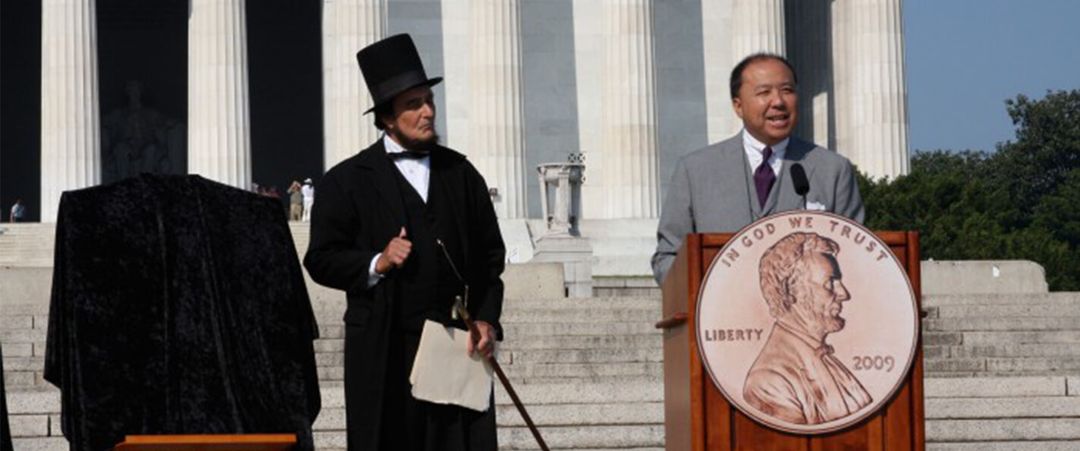Patty Cisneros Prevo is many things: a mother; a daughter; a sister; an educator; an athlete; a first-generation Latina; and a program manager of diversity, equity, and inclusion (DEI) with the UW School of Medicine and Public Health. After a car accident at age 18 left her with a spinal cord injury, she’s also a wheelchair user. And while learning how to navigate a world built for non-disabled individuals, she discovered wheelchair basketball.
“Wheelchair basketball really saved my life,” Cisneros Prevo says. “It was very therapeutic for me mentally, physically, [and] emotionally to be able to play sports but also be connected with people who had very similar experiences as me.”
Prior to her accident, Cisneros Prevo was a three-sport athlete. Just three years after her accident, she was representing her country as a member of the U.S. Paralympics Women’s Wheelchair Basketball National Team.
“After I got injured, it was almost like that opportunity [to pursue an athletic career] presented itself even more so than it would have as a nondisabled person,” she says.
Cisneros Prevo is a three-time Paralympian and two-time gold medalist. She won her first gold medal in Athens on the eighth anniversary of her accident and led her team to their second consecutive gold medal as cocaptain in Beijing. Back in the states, she won five national championships in the National Wheelchair Basketball Association (NWBA) and made history as the first solo female head coach of a collegiate wheelchair basketball program.
Paralympian, gold-medalist, champion, captain, coach: Cisneros Prevo is many things, but don’t call her “an inspiration.” Don’t commend her ability to “overcome” her injury. And, please, don’t call her “unstoppable.”
“Certainly, stairs stop me,” Cisneros Prevo says. “I’m not ‘unstoppable’ when I see physical barriers that don’t allow me to be independent or mobile.”
It may come as a surprise, then, to learn that Unstoppable was the original title for Cisneros Prevo’s authorial debut. (Add “children’s book author” to her list of accolades.) Upon noticing a lack of disabled representation in children’s literature during trips to the library with her young kids, she channeled the determination that once earned her gold medals into writing the book her library was missing.
Cisneros Prevo had been living with a disability for nearly 20 years by the time she began writing her book, but it was only then that she began to understand what it meant not just to be a disabled person, but to be an advocate for her community.
“When I first became disabled, I was operating out of the medical model of disability, which is basically putting all the onus on the disabled person to make things accessible,” she says. “For years, I just othered myself … often not even using the word disabled or disability.”
She also didn’t use the word ableist until the publication process when her manuscript was described by a disabled activist and reviewer as “dripping with ableist language.”
“I [was] like, ‘What are you talking about?’ ” Cisneros Prevo recalls. “But as I read her [feedback], I was like, ‘Wow, yeah, she’s right.’ Everything that I wrote was [framed] as an inspiration or [as being accomplished] despite having a disability.”
Wanting to do right by her community and to further her own understanding of disability discourse, Cisneros Prevo set to work revising her manuscript with the same dedication with which she wrote it.
“I think that’s when I started to feel comfortable being identified as a disability advocate,” she says.
The title also needed to change. Unstoppable, she decided, perpetuated the “super-crip” trope that suggests that disabled individuals have superhuman capacities that overcome their disabilities. Her editor offered a replacement: Tenacious.
“I feel like the definition of tenacious is being gritty and determined and pushing forward,” Cisneros Prevo says. “It doesn’t have that inspirational aspect that unstoppable does.”
Tenacious: Fifteen Adventures alongside Disabled Athletes is a collection of stories about disabled athletes, their respective disabilities, and their successful careers. Each athlete includes a “daily joy” and a “daily challenge” to illustrate that they are ambitious, motivated, strong, and successful.
Long retired from her own athletic career and well-versed in disability discourse as a DEI professional, Cisneros Prevo is now an advocate for athletes everywhere. In January 2021, she was appointed to the Congressional Commission on the State of U.S. Olympics and Paralympics. She remains an active voice in the NWBA, and she was in the stands in Paris this summer to cheer on Team USA in the Paralympic Games.
“When I [present] on disability and ableism, I really make sure to name that as an athlete, I didn’t help our community,” she says. “Now, I really want to do right by the community because ableism affects all of us. It doesn’t matter if you [have] a spinal cord injury with arm movement and you’re active, or [if you’re] someone who has a higher-level disability who isn’t fully independent. Ableism is going to show up the same way. There are barriers in our society that we all have to figure out and overcome.”
Author, advocate, commissioner, fan — and Cisneros Prevo adds her own word to the list.
“I think of grit when I think of tenacious,” she says, “and I’ve always used [gritty] to describe who I am.”










